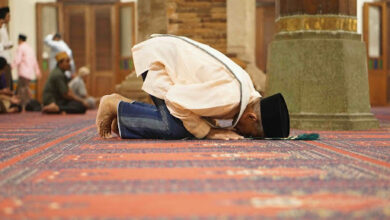
The meaning of slander
According to the Indonesian dictionary, slander means disaster which is identical to bringing loss and misfortune. Meanwhile, according to Arabic, the word slander is synonymous with reinforcements and calamities.
Meaning of woman
In Islam, there are 3 characteristics that refer to women. Namely, al untsa: female (Qur'an 49:13), al mar'ah: female (QS. 4: 128), and an nisa': female (name of the letter).
In terms of being referred to as al untsa, it is a gender call. It is related to:
1. Shows the female organs which are the prerogative of Allah SWT.
2. Demonstrates human reproductive function (vagina and uterus).
3. Inheritance law application.
4. Introduction to mahram and its limitations.
In terms of being referred to as al mar'ah or imr'oah, it is a domestic role call. It is related to:
1. Call of wife status.
2. The law is binding in household matters (wells, mattresses, and kitchens).
3. The main responsibility of women is at home.
Meanwhile, in terms of being called an nisa', it is a call for social roles. It is related to:
1. Covers the totality of personal, family and community life.
2. A letter that was revealed to improve the culture and civilization of the Romans, Persians, and Jahiliyah which discredited women.
3. Discusses the content of perfect knowledge so that Muslim women become "running letters of An Nisa".
Hadith of the Prophet SAW about women
There are several sayings of the Prophet SAW about women.
First: about the slander of women.
امَةَ اللَّهُ ا
النَّبِيِّ لَّى اللَّهُ لَيْهِ لَّمَ الَ ا لَى الرِّجَالِ النِّسَاءِ
He said, "I have not left a fitnah after me that is more terrible for men than the fitnah of women." (Narrated by Bukhari)
Second: about women and the mosque.
Ibn Umar reported that the Messenger of Allah said, "Do not prevent women from going to Allah's mosque". (HR. Muslim)
Third: about women and genitalia.
The Messenger of Allah said, "It is not in the morning but there will be two angels calling out, 'Woe to the men who imitate women, and woe to the women who imitate men'." (HR. Ibn Majah)
Fourth: about women who are clothed but naked.
One night the Prophet woke up and said, "Subhaanallah (Glory be to Allah), what slander was sent down this night? And what was opened from the two treasuries (Roman and Persian)? Wake up, O occupants of the room (the wives of the Prophet), because how many women are clothed (tight and see-through) in this world but they will be naked in the hereafter (not getting good)." (Narrated by Bukhari)
Fifth, about women and the temptation of love.
Abdullah bin Mas'ud said, "A man is slandered by a woman, I don't know what he has done, it's just that he has not yet committed adultery. Then he came to the Prophet and mentioned all that he had done, then Allah sent down the verse, "(And establish prayer on both sides of the day (morning and evening) and at the beginning of the night. Verily, good deeds wipe out (sins)." ) bad deeds. That is a warning to those who remember). (Narrated by Ibn Majah)
Sixth: about women and verbal.
He said, "O women, increase alms and istighfar, I see that most of you are residents of Hell." Then a fat woman from them asked, "O Messenger of Allah, why do we go to hell the most?" He replied, "You curse a lot and betray your husband's treatment, I have never seen an intelligent creature whose reason and religion are less than you." The woman again asked, "O Messenger of Allah, what is meant by lack of reason and religion?" He replied, "As for his lack of reasoning because the testimony of two women is the same as the testimony of a man, this is from a lack of reason. You staying for several days without praying and breaking your fast in the month of Ramadan is proof of your lack of religion.” (HR. Ibn Majah)
Seventh: about allegations of female infidelity.
The Prophet said, "There will be at the end of my Ummah a sinking (into the bowels of the earth), a change of form, and slander (accusations of adultery against women)." (HR. Ibn Majah)
Eighth: about the polemic of women's leadership.
Abu Bakrah said; During the days of Jamal's war, I have learned a lesson from the Prophet's message, precisely when he knew the Persian kingdom had appointed Kisra's daughter as king, he immediately said, "It would not be good for a people to appoint women as the leader of their affairs. ." (Narrated by Bukhari)
Delivered by Ustadzah Nur Hamidah Lc., M.Ag., during the Halaqoh online study on Tuesday for Female Expatriates, November 16, 2021.



